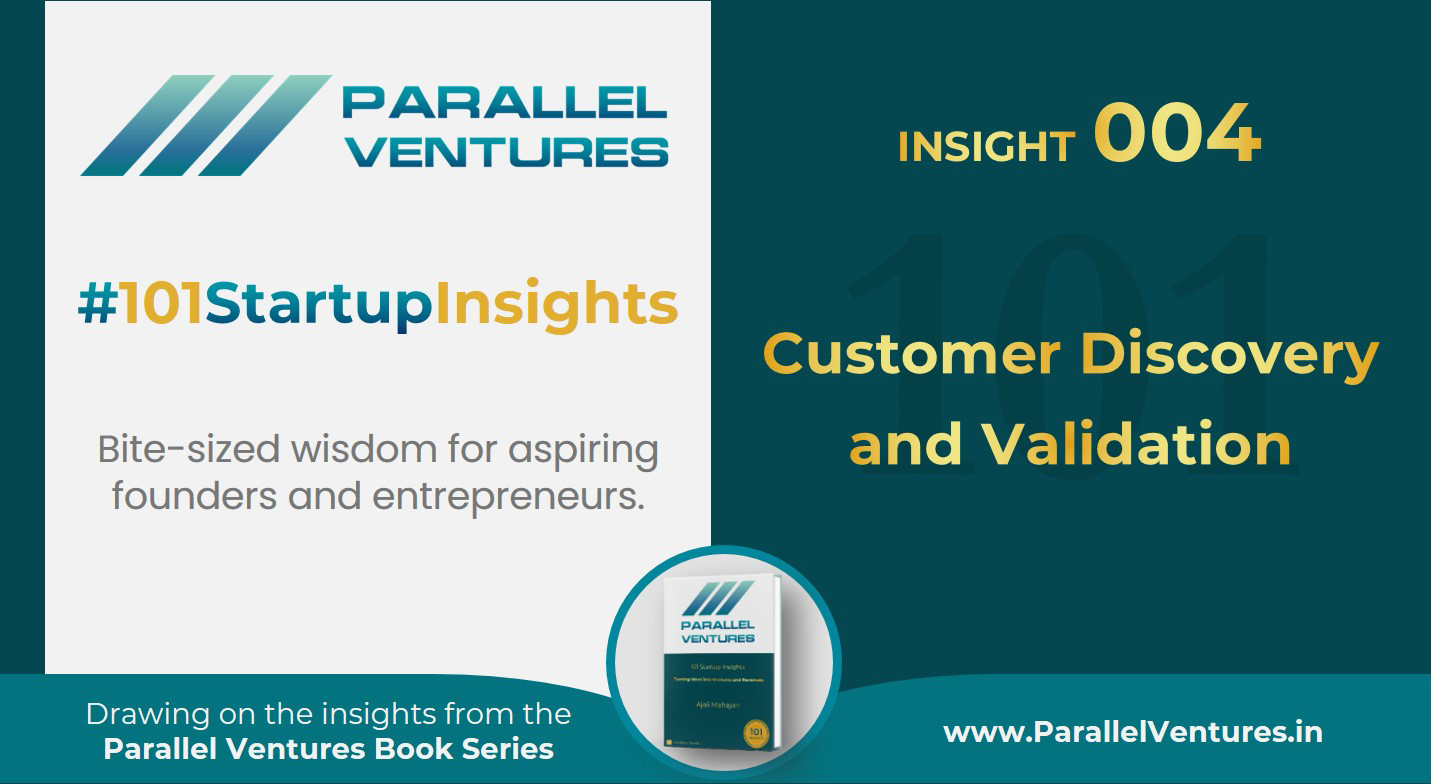
You may believe in your idea with every fibre of your being. It might keep you up at night, energise your mornings, and make your vision of the future feel magnetic. But belief alone isn’t enough.
If your product doesn’t solve a real problem for real people, it won’t survive.
And the only way to find out? Talk to them.
This is where most early-stage founders stumble—not because their idea is weak, but because it’s untested. They build quietly, protectively, often in isolation—only to realise too late that the market doesn’t care. That’s why this insight, Customer Discovery and Validation, is a critical inflection point in any founder’s journey.
You’re Not Looking for Praise—You’re Looking for Truth
Many founders approach early customer conversations with one unconscious goal: to be validated. But customer discovery isn’t about praise or encouragement. It’s about surfacing truths—especially the ones that challenge your assumptions.
A strong idea is like raw ore. You need to refine it through friction—through real-world questions, objections, and constraints. That process is what transforms your concept into something useful.
Priya and Rohan Step Into the Market
Priya had conviction. She knew the world needed more sustainable fashion choices, and she believed conscious consumers would rally behind her cause. But after a few honest conversations, her assumptions were put to the test.
Yes, her potential customers cared about the planet. But what truly shaped their purchase decisions were style, price, and ease of access. Sustainability mattered—but only if it looked good and didn’t cost too much.
That feedback didn’t kill her dream. It sharpened it. She didn’t abandon her values—she realigned her strategy. Her revised model embraced sustainability while remaining accessible and stylish.
Rohan took a more experimental route. Instead of waiting to build his logistics solution in full, he launched a simple landing page. He described his service clearly, offered a sign-up form, and shared it with small business owners.
The result? Sign-ups started trickling in. He didn’t need a finished product to know he was solving something real. That early interest was his validation.
Two different approaches. One common principle: don’t assume. Ask.
What Is Customer Discovery, Really?
Customer discovery is not a marketing activity. It’s a foundational product discipline.
It’s how you ensure you’re not building a solution in search of a problem.
The goal isn’t just to understand what your customer wants—it’s to understand:
- What problem they face
- How they currently try to solve it
- What’s broken in their current solution
- What they would pay to fix
These conversations don’t need to be perfect. But they do need to be honest, curious, and structured.
Start with a few core hypotheses:
- Who is your customer?
- What problem are you solving?
- Why is your solution better?
Then go out and test those hypotheses—not with surveys alone, but with conversations, demos, mock-ups, or pilot pages.
Validation Isn’t a Gut Feeling
Too many founders confuse positive feedback with validation. But compliments don’t build companies—commitment does.
The real test of validation is action:
- Did they sign up?
- Did they pay for something?
- Did they refer others?
- Did they follow up without being nudged?
These are the signals that matter.
You don’t need a fully functional product to gather them. You just need to present your value clearly enough that someone says: “Yes, I need this.”
That’s what Rohan learned through his landing page. And it’s what countless successful founders realise only after they stop seeking approval and start seeking evidence.
Keep It Flexible, Stay Humble
Customer discovery doesn’t just challenge your assumptions—it also challenges your ego. And that’s a good thing.
The best founders are willing to shift. They don’t get defensive when their idea gets reshaped. They listen, learn, and adapt.
Because in the end, you’re not building a monument to your genius. You’re building a solution that others can rely on. The more you involve them in the process, the better that solution becomes.
This Insight Is Just the Beginning. In the Book, You’ll Explore…
- How Priya and Rohan structured their customer interviews and analysed patterns
- Techniques for running lean validation experiments (landing pages, MVPs, waitlists)
- Tools to test hypotheses before committing to product development
- Common mistakes in customer discovery—and how to avoid them
- Step-by-step guides to turning feedback into meaningful product decisions
Before You Go
Discovery is not optional.
Validation is not a luxury.
These are the building blocks of every lasting startup.
So before you build anything, step outside your head—and into your customer’s world.
They hold the answers. You just need to ask.
Onward to better questions,
#101StartupInsights
Warmly,
Ajaii Mahajan
Founder, Mentor, Author – Parallel Ventures
Related Links
🌱 Explore the Books – Parallel Ventures
